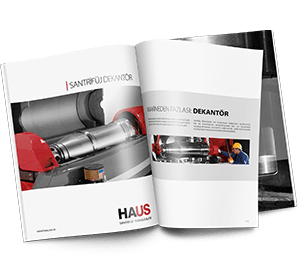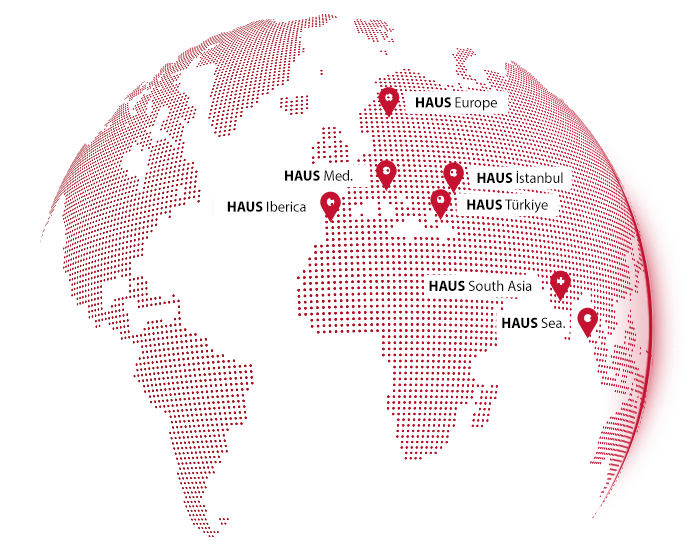Anhydrous milk fat (AMF) is a valuable product with 99.8% purity of fat used in a wide variety of applications in the food industry and is particularly notable for its long shelf life and rich flavour profile. Produced by traditional methods as well as modern centrifuge technologies, AMF is widely preferred in many areas such as chocolate, ice cream, pastries and butter thanks to its purity. HAUS's superior separator technology also adds innovation to industrial processes by offering high efficiency, energy saving and continuous production in AMF production.
Traditional and Modern Methods in AMF process:
Anhydrous milk fat, also known as clarified butter, can be produced in different ways using both traditional methods and modern technologies. In the traditional method, butter is melted in pots or boilers over low-medium heat, during which the water evaporates, the milk solids settle to the bottom and pure fat accumulates on top. This phase separation usually takes 24 to 72 hours. The resulting foam is removed by hand, after which the pure fat is carefully filtered to separate it from the sediment. Although this method is favoured in small-scale production, the long duration of phase separation reduces efficiency. Furthermore, the equipment used during separation requires frequent cleaning; without regular cleaning, the risk of contamination and bacterial growth increases. For these reasons, the need for more efficient and hygienic modern systems such as HAUS separators is increasing.
With modern technologies, production is carried out in industrial plants with fully automatic machines. The butter is processed in large melting tanks at controlled temperatures, while water vapour is evacuated and milk solids, especially phospholipids, are separated by automatic systems. The separation of phospholipids ensures that the product is both purified and reaches the desired quality standards for a long shelf life. Finally, the product is freed from residual water molecules with the help of vacuum dryers. Based on the commercialisation potential of the product, protection against oxidation is provided with vacuum packaging systems and shelf life is extended. Plain oil, which goes through many stages until it reaches the end consumer, can be obtained today thanks to centrifugal separators compared to traditional methods.
The Role of HAUS Separators in AMF Processes
The main advantages of HAUS separators are speed, efficiency, high purity, energy saving and continuous production. The centrifugal process improves production efficiency by realising the separation process in a fast and highly efficient manner. Furthermore, this technology makes it possible to achieve purity levels as high as 99.8% in AMF production. Our modern separators are energy efficient, reducing energy costs for businesses. Integration into a continuous production line ensures uninterrupted production. All these features make separator technology an efficient, reliable and economical option for AMF production on an industrial scale.
The commissioning process of the separators, which were designed as a result of HAUS' unique designs for customer needs and efforts to improve the product and process quality, was successfully completed by testing with the product. This success is an indication of the value we offer to our customers and our solution-oriented approach to their needs.
Samples taken from the machine commissioned in Iran








